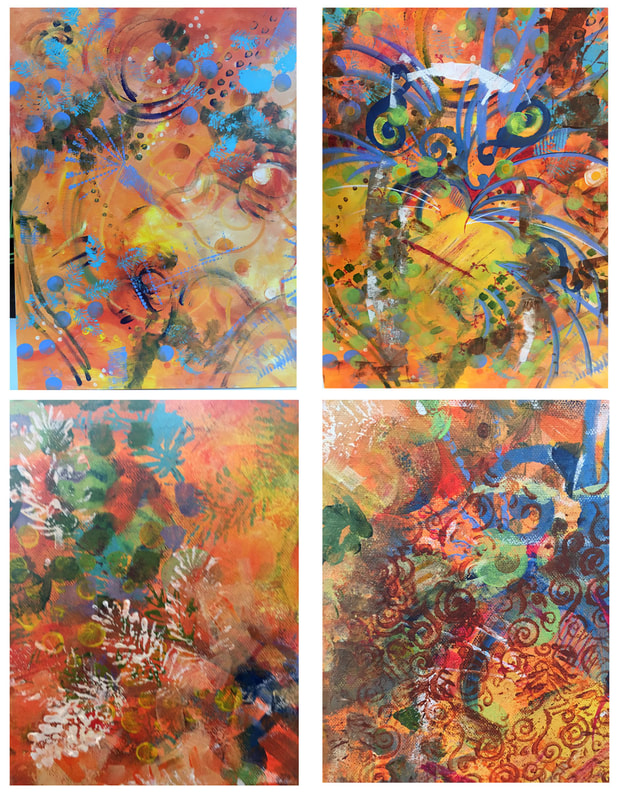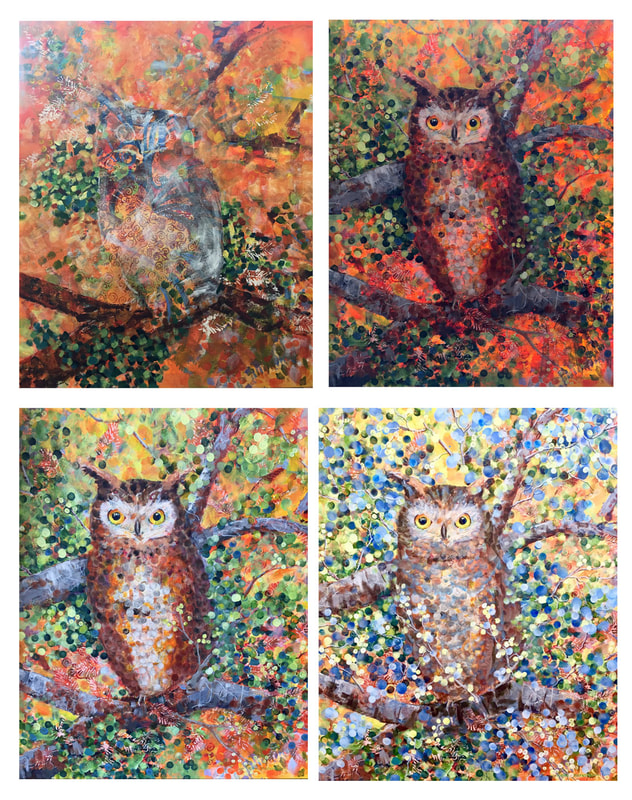FROM APPLE FARM WRITER/ARTIST, Kathy Stiffney
This is a series of images I took as a painting developed. They provide an example of working with seeming chaos , allowing (with inner guidance) the prime material to direct movement toward meaningful order.
This is a series of images I took as a painting developed. They provide an example of working with seeming chaos , allowing (with inner guidance) the prime material to direct movement toward meaningful order.



 RSS Feed
RSS Feed
